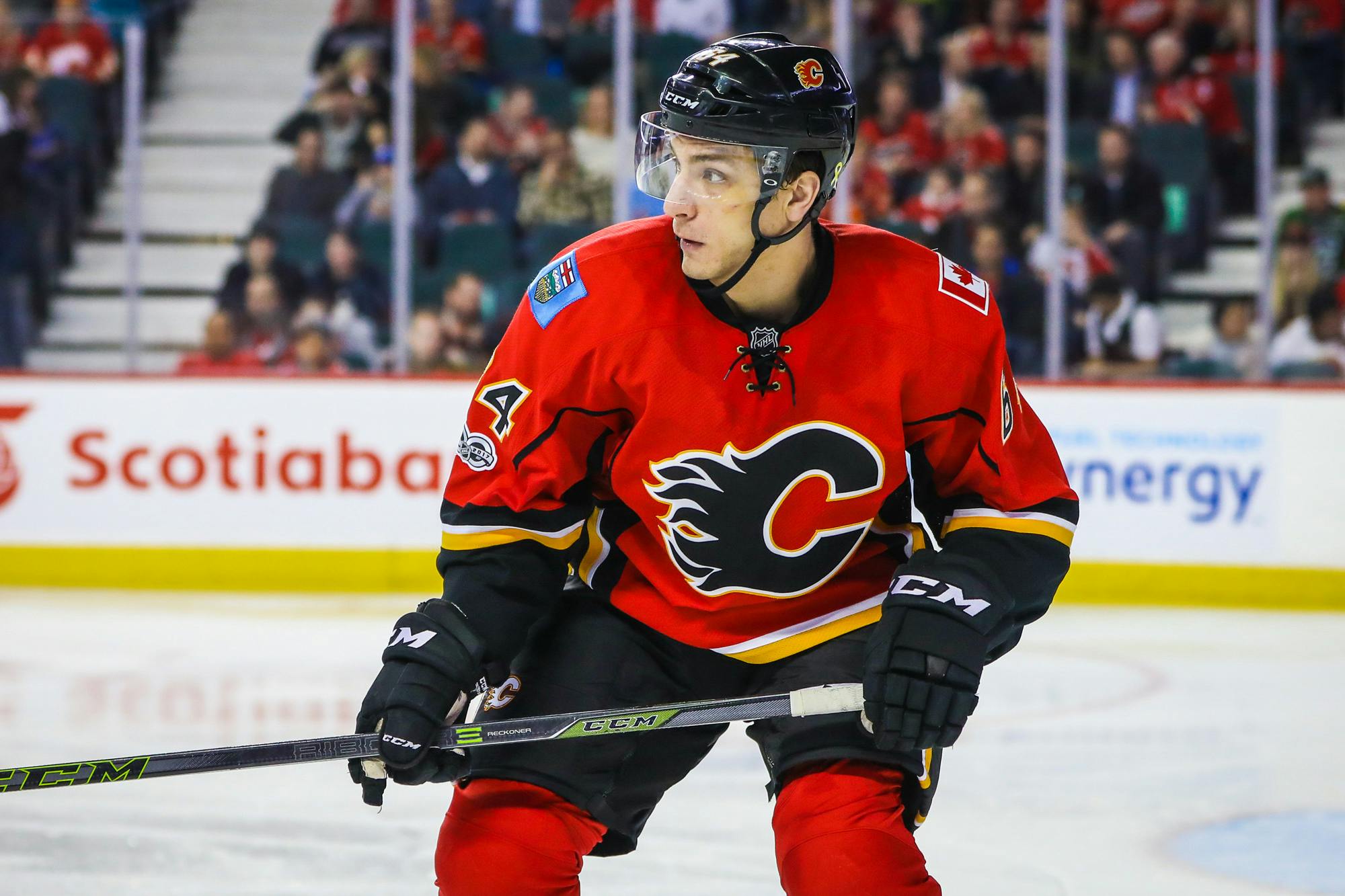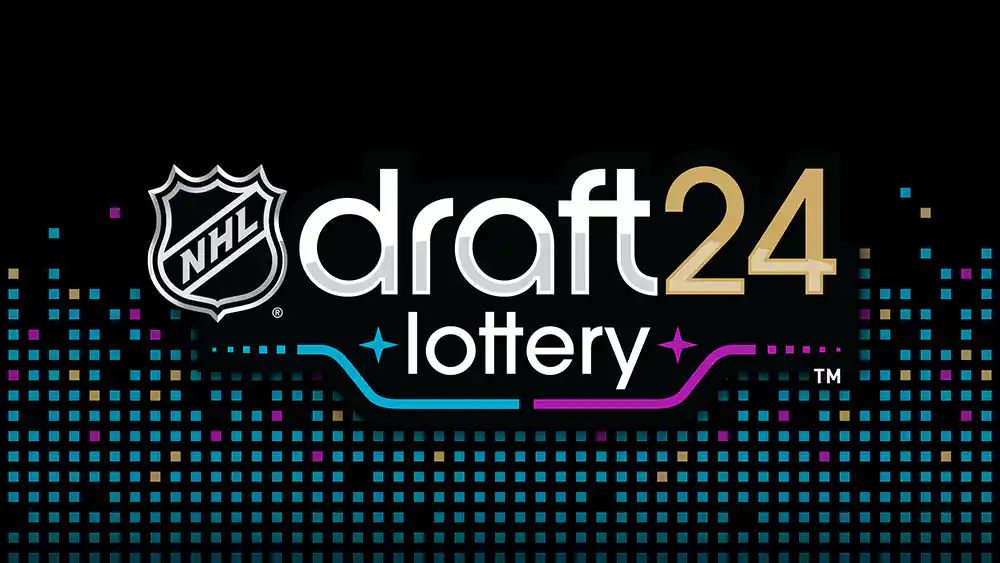FlamesNation player evaluation: Garnet Hathaway

Garnet Hathaway started the season as one of the best players in the AHL. On a line with Mark Jankowski and Andrew Mangiapane, the trio was undoubtedly one of the best in the league. After amassing 19 points in 18 games, Hathaway was called up to the Flames. It was not surprising that his success in the AHL did not translate to the NHL.
2017-18 season summary
It was thought that reuniting Hathaway with his AHL centreman Jankowski would allow both players to build on their established offensive chemistry and provide nice secondary scoring for the Flames from the bottom six. This didn’t really happen as the third line was one of the consistently inconsistent pieces of the roster. Hathaway was mostly relied on to play a depth role offensively, play the penalty kill, and hit things.
| Games played | Goals | Assists | Points | TOI/GP | 5v5 CF% | 5v5 CF% rel | OZS% | PDO |
| 59 | 4 | 9 | 13 | 11:32 | 53.53 | -2.6 | 54.2 | 0.999 |
Hathaway playing alongside Jankowski and Sam Bennett wasn’t really a source of good news for the Flames this season. He was only able to score four goals in 59 games for the Flames, and his biggest night on the scoreboard was a two-assist showing in December against the Canucks. That game was in the middle of a stretch that saw him put up six points in eight games. Beyond that, there wasn’t much else in terms of offensive success to talk about with Hathaway. His silver lining was that he finished seventh on the team in CF% for skaters who played more than 10 games.
In comparison to his linemates, Hathaway stood out for the wrong reasons. Jankowski scored 13 more goals and Bennett scored twice as many points as Hathaway did this year. His style of play does not translate to an offensive role; he’s a fourth line grinder at best, and that’s not the type of player you want to dress for 59 games.
In his defense, Hathaway was a good soldier for the team. He played up and down the lineup, rotated through different linemates, and was trusted enough to dress for most of the season. After being recalled by the Flames, he only missed one game.
All in all, Hathaway was a solid worker but just wasn’t good enough to move the needle for the Flames. His success with the Heat prompted some doubt in his doubters, but they were quickly proved right once he saw more time with the Flames. Positions aside, Spencer Foo and Andrew Mangiapane probably would have been better options to stay on the Flames’ roster and while Hathaway didn’t actively hurt the team, he definitely didn’t actively help.
Compared to last season
Hathaway played just 26 games last season and put up five points for a PPG of 0.19. His 13 points this year were good for a 0.22 PPG. Even two years ago, his three points in 14 games gave him a 0.21 PPG. The trend is clear: offense isn’t his forte. This season, his shot percentage was actually 1.4% higher than the last and he played almost 2.5 extra minutes a night. In an increased role, the stagnation in his offensive numbers does not make a good case for keeping him around.
This year, Hathaway showed the coaches that he was worth the call-up, but ultimately he panned out exactly as expected. He pitched in with two or three hits every game, a couple penalty minutes, some time on the penalty kill, and a point every five games or so. The only thing out of the ordinary with Hathaway this year was that his call-up was permanent; his underwhelming numbers aren’t because of a giant drop off in shot percentage or being saddled with terrible linemates or even starting shifts in the defensive zone. He simply did not carry his weight.
What about next season?
It’s probably safe to say we know who Garnet Hathaway is. He’s exhibited relatively the same style and level of play over the past three seasons with the Flames, and should he remain a fixture on the roster next season, it will probably be more of the same. He’s in this middle area where he’s really good in the AHL, but just not good enough for the NHL. He really doesn’t belong on the Flames’ roster and perhaps his biggest asset to the team would be his ability to mentor young players like Dillon Dube and Matthew Phillips and help them adjust to the AHL.
Hathaway doesn’t have a contract for next season and will become an RFA on July 1. He has arbitration rights but it’s unlikely he’ll be able to wield that hammer to earn a big money contract from the Flames.
He’s been a part of the Flames since he was signed out of college. Last year he signed a one year deal to stay in Calgary; it seemed like he had more to show and after getting a taste of the NHL was primed to take a step forward and contribute at the NHL level. This time around, that sentiment is dampened by an underwhelming 13-point season. Hathaway will turn 27 this year and it sure looks like what we’re seeing from him now is the best he can deliver. The Flames may offer him another short term contract for next season, a last shot contract if you will, but don’t be surprised if Brad Treliving decides not to tender him an offer.
| #5 – Mark Giordano | #7 – TJ Brodie |
| #8 – Chris Stewart | #10 – Kris Versteeg |
| #11 – Mikael Backlund | #13 – Johnny Gaudreau |
| #15 – Tanner Glass | #18 – Matt Stajan |
| #19 – Matthew Tkachuk | #20 – Curtis Lazar |
Recent articles from Karim Kurji & Bill Tran





